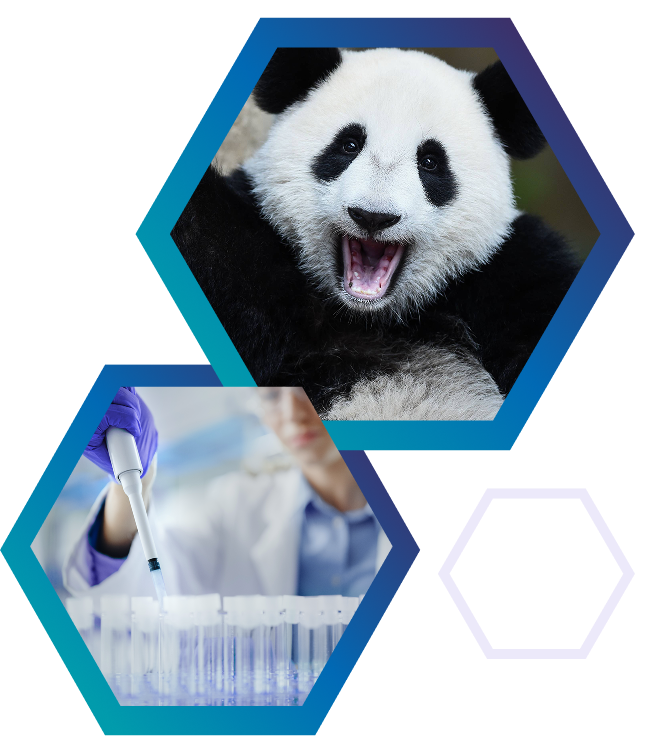The Power of Non-Invasive Fecal Biomarker Testing
Non-invasive fecal hormone analysis for stress and reproduction assessment in wildlife studies
Hormone levels are widely used to measure stress and reproductive status in humans and animals. Levels of progestins and estrogens are used to measure ovulation and reproductive cycle, while glucocorticoids are reliable biomarkers of both physiological and psychological stress.
Hormonal analysis is especially important when studying critically endangered wildlife populations. Non-invasive methods of sample collection are preferred because difficulties obtaining blood samples from wildlife can skew hormone levels, particularly with stress related biomarkers. Luckily, wild and captive animals have a predilection for producing a surplus of samples easily collected.
Tools for fecal hormone monitoring (FHM) are invaluable for conservation research and Arbor Assays has developed a range of products for measuring important biomarkers in fecal samples. Our hormone assay kits are already validated in dozens of species and widely used by wildlife researchers across the world with numerous citations in peer-reviewed journal articles. For example, a recent study by Franklin et al. in Zoo Biology investigated stress and reproductive success in a critically endangered captive red wolf population by measuring cortisol, estradiol, and progesterone in wolf droppings. The study avoided introducing stress by using non-invasive sample collection for FHM with kits from Arbor Assays. Additional information about tools for FHM and how to determine if they are right for your species or study can be found on our website.
Fecal Biomarker Testing Resources
RELATED KITS
Cortisol ELISA Kits
K003-H1/H5 – Citations
Corticosterone ELISA Kits
K0014-H1/H5 – Citations
Estradiol ELISA Kits
K030-H1/H5 – Citations
DNA Damage ELISA Kits
K059-H1/H5 – Citations
Progesterone ELISA Kits
K025-H1/H5 – Citations
Testosterone ELISA Kits
K032-H1/H5 – Citations
Thyroxine (T4) ELISA Kits
K056-H1/H5 – Citations
Triiodothyronine (T3) ELISA Kits
K024-H1/H5 – Citations

